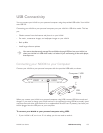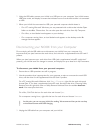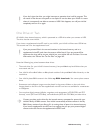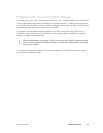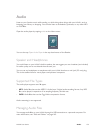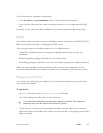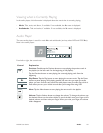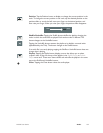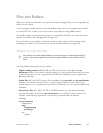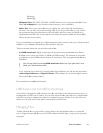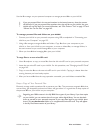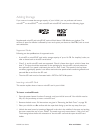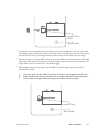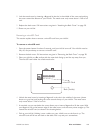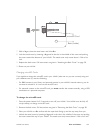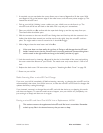
NOOK User Guide Files and Folders 163
Files and Folders
When your NOOK is connected to your personal computer through USB, you can manage files and
folders on your NOOK.
You can manage personal content on the internal flash memory and on the supplemental microSD
or microSDHC card, if there is one. You also have some ability to manage B&N content.
Use the file manager on your personal computer to manage files and folder. For more information
about this procedure, see “Managing Files” on page 164.
Files you transfer to your NOOK could harbor viruses or other malware. For information about
protecting your NOOK, see “Protection from Viruses and Other Malware” on page 158.
Where You Can Put Files
Your NOOK uses some top-level folders in internal memory to locate specific kinds of
content. You must put specific kinds of files in specific folders, so your NOOK will find
them.
You can put files in these places on your NOOK:
• Digital reading content (EPUB, PDB, and PDF formats): Place these files in the my
documents folder in your NOOK’s internal memory, or in any top-level folders that you create
in the internal memory or on a supplemental microSD card. Optionally, you can organize the
files using subfolders.
• Audio files (MP3 and OGG formats): Place these files in the my music and my audiobooks
folders in your NOOK’s internal memory, or in any top-level folders that you create in the
internal memory or on a supplemental microSD card. Optionally, you can organize the files using
subfolders.
• Screensaver files (JPG, JPEG, GIF, PNG, and BMP formats): You must place these files in
top-level sub-folders of the folder my screensavers in your NOOK’s internal memory. For
example, in the following organization, only the dogs screensaver files can be used:
rabbit.jpg
my screensavers
antelope.bmp
dogs
schnauzer.png
poodle.gif
cats
longhair



